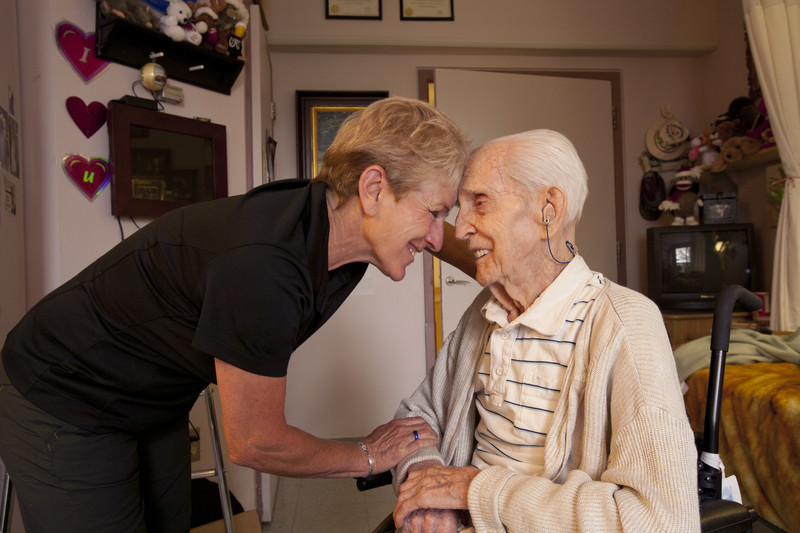Tips to Stay Sharp as You Age
Uncategorized | September 9, 2015
[vc_row][vc_column width=”1/1″][vc_column_text]
No Matter What Your Age – Changes Can be Implemented…
One of the greatest fears many people have of growing older is losing their mental acuity. While there are some diseases and conditions of the brain over which we have no control, there are some that are preventable with certain lifestyle changes. The good news is that these changes can be implemented no matter what the person’s age is. Researchers have identified a number of characteristics that seem to help keep people mentally sharp well into their senior years.
Learning and mentally exercising:
While there is some debate as to whether doing puzzles and other mind games has any significant impact on staving off cognitive decline, there is strong evidence that learning for the long term keeps the brain elastic. Research has shown that the process of learning helps keep the brain sharp when that which is learned is retained, or remembered. In other words, by this definition, learning is the process of memorization. Thus, learning something for the short term, such as following a recipe, then forgetting it later, does not have any lasting impact. However, learning how to play an instrument or fix a car, and perhaps even teaching others, requires memorization and strengthens the brain’s circuits.
Having more years of formal education:
People who have more years of formal education face a reduced risk of cognitive decline than those with fewer years of formal schooling. Formal education works the brain through the learning process, and creates stronger connections in the brain circuit. This can help compensate as the brain changes with age. Additionally, those with greater formal education tend to have lifestyles that are healthier for the brain in general. For seniors who never had the chance to continue their formal education, retirement may just be the opportune time to do so. Many colleges and universities offer courses at low cost or for free to seniors.
Interacting socially:
Seniors who interact regularly with friends, family, and community are less likely to experience cognitive decline and can experience a better sense of overall wellbeing. This may be due to the fact that social engagement allows people to deal with stress more productively and seniors who are more socially engaged tend to be more physically active. Seniors who are unable to drive can enlist the help of family and friends to get to social engagements, or seek the assistance of professional caregivers. Professional caregivers can help seniors get to events and engagements when family and friends are unavailable.
Physical activity:
You have heard the experts tout exercise as a remedy for most of what ails the general populace today, and it turns out that exercise is also a great way to help keep the mind sharp. Seniors who have not been physically active should consult with a physician before beginning an exercise program.
Good nutrition:
Certain forms of dementia, such as some types of Alzheimer’s disease, can be averted, or at least the risk can be significantly decreased, with a diet that is made up primarily of vegetables, legumes, fish, and whole grains. Before making changes to diet, though, it is important that seniors first discuss any changes with their doctors. Seniors who need help with some daily activities, such as cooking, can seek the help of professional caregivers. Professional caregivers can help seniors with meal preparations and help them adhere to doctor-prescribed diets.
Self-efficacy or believing in one’s own abilities:
Scientists are not sure why self-efficacy seems to ward off mental decline, but it may have to do with the person’s ability to manage off stress. People who believe in their ability to tackle problems have a more positive outlook and are able to more quickly bounce back from setbacks. This helps them to become more deeply involved in activities and maintain interest in what they are doing, which in turn challenges the brain.
While some changes in the brain are normal as people age, those changes do not always have to have a strong impact on seniors’ lives. Many seniors are as sharp, or sharper, than many young adults in their 20s. Taking an active role in engaging the mind can help seniors reduce their risk of brain diseases, such as dementia, and live fulfilling lives as strong contributors to their communities. To learn how professional caregiving can help seniors stay active, social, and engaged, contact your local Comfort Keepers® office today.
Fast Facts
Exercise releases a protein in the brain that stimulates the growth of new brain cells.
If you enjoyed the article, Tips to Stay Sharp as You Age, please share it with your friends. 🙂
References
Bergland, C. (April 9, 2014). Physical activity improves cognitive function. Psychology Today. Retrieved from https://www.psychologytoday.com/blog/the-athletes-way/201404/physical-activity-improves-cognitive-function.
Cherry, K. (n.d.). What is self-efficacy? About Education. Retrieved from http://psychology.about.com/od/theoriesofpersonality/a/self_efficacy.htm.
LaPonsie, M. (May 15, 2015). 5 Secrets to staying sharp as you age. U.S. News & World Report. Retrieved from http://money.usnews.com/money/retirement/articles/2015/05/15/5-secrets-to-staying-sharp-as-you-age.
NRTA and the Dana Alliance for Brain Initiatives. (2011). Staying sharp: Learning as we age. Retrieved from http://www.dana.org/uploadedFiles/The_Dana_Alliances/Staying_Sharp/Staying%20Sharp%20Learning%20as%20We%20Age.pdf.[/vc_column_text][/vc_column][/vc_row]
Individualized Home Care Options
Long-Term Home Care, 24 Hour Home Care & Short Term Care Options Customized for You







